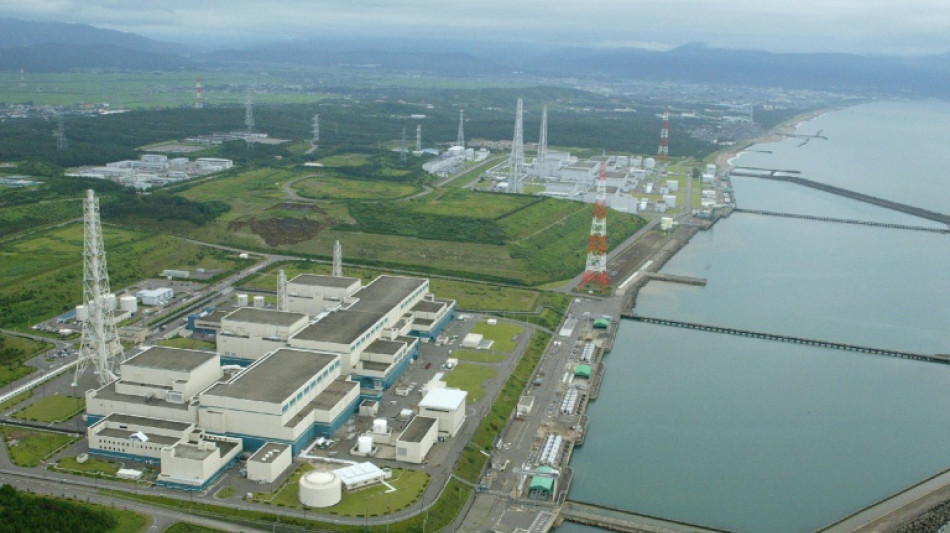
-
 Olympic ski champion Gut-Behrami suffers knee injury
Olympic ski champion Gut-Behrami suffers knee injury
-
Ukraine cornered by US plan heeding Russian demands
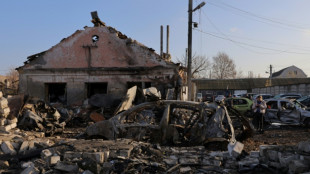
-
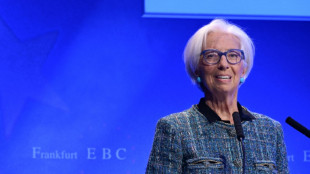 Europe increasingly 'vulnerable' to shocks: ECB chief
Europe increasingly 'vulnerable' to shocks: ECB chief
-
Slot says Liverpool will never use Jota grief as 'excuse' for poor form

-
 Aussie Wilson 'devastated' after Gordon ruled out of France Test
Aussie Wilson 'devastated' after Gordon ruled out of France Test
-
Ken Follett: 'There can't be boring bits in my books'

-
 Wales rugby turmoil here to stay as nostalgia battles financial reality
Wales rugby turmoil here to stay as nostalgia battles financial reality
-
Frida Kahlo painting sells for $54.7 mn in record for female artist

-
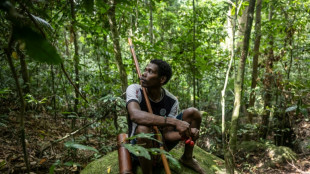 Thailand's last hunter-gatherers seek land rights
Thailand's last hunter-gatherers seek land rights
-
Tech firms lead stock rout as AI bubble fears linger

-
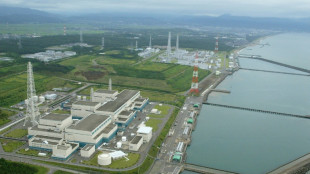 World's biggest nuclear plant edges closer to restart
World's biggest nuclear plant edges closer to restart
-
India's injured Gill out of must-win second South Africa Test

-
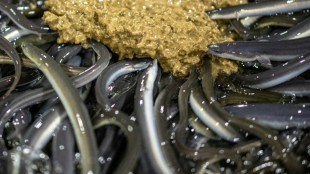 Japan's eel delicacy faces global conservation pressure
Japan's eel delicacy faces global conservation pressure
-
Starc takes seven as England rolled for 172 in Ashes opener

-
 New York's incoming leftist mayor to face off with Trump
New York's incoming leftist mayor to face off with Trump
-
Fossil fuel showdown looms on UN climate summit's final day
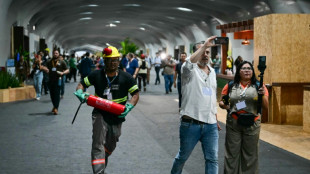
-
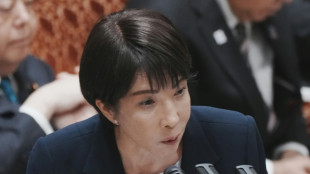 Japan's Takaichi insists $135 bn stimulus fiscally 'responsible'
Japan's Takaichi insists $135 bn stimulus fiscally 'responsible'
-
Norris tops red-flagged second practice for Las Vegas GP

-
 Miss Mexico wins Miss Universe contest after host insult drama
Miss Mexico wins Miss Universe contest after host insult drama
-
Texans sack Allen eight times to beat Bills 23-19

-
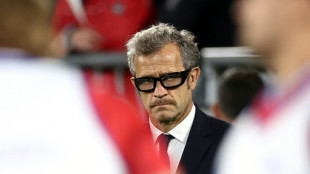 Rusty France face 'tired' Australia at end of torrid year
Rusty France face 'tired' Australia at end of torrid year
-
Dortmund host new nemesis Stuttgart with title hopes slipping away

-
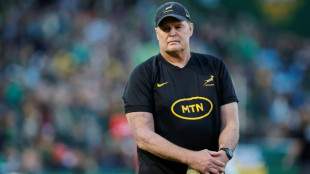 Munster tragedy 'life-changing' for Springbok coach Erasmus
Munster tragedy 'life-changing' for Springbok coach Erasmus
-
Starc on fire as England slump to 105-4 at lunch in Ashes opener

-
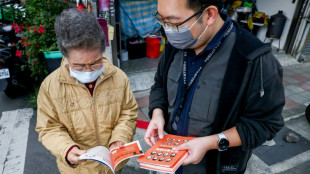 Taiwan issues 'crisis' guide on preparing for disasters, Chinese attack
Taiwan issues 'crisis' guide on preparing for disasters, Chinese attack
-
Washington's abandoned embassies have stories to tell

-
 Maxey powers Sixers over Bucks as Spurs beat Hawks
Maxey powers Sixers over Bucks as Spurs beat Hawks
-
Barca hoping Camp Nou return can spark Liga title defence

-
 All Blacks bid to bounce back for season-ender against struggling Wales
All Blacks bid to bounce back for season-ender against struggling Wales
-
Pogba set for long-awaited comeback as Ligue 1 returns

-
 Inter and Milan in early Scudetto clash as Napoli attempt to bounce back
Inter and Milan in early Scudetto clash as Napoli attempt to bounce back
-
How England revived their rugby fortunes

-
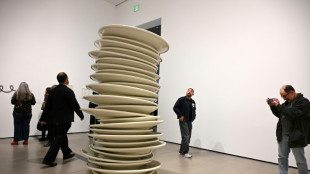 A big deal: Robert Therrien's huge sculptures on show in LA
A big deal: Robert Therrien's huge sculptures on show in LA
-
In U-turn, US rights report to track gender changes, DEI
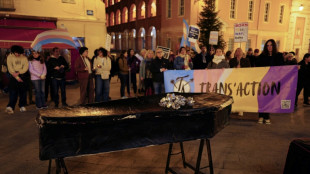
-
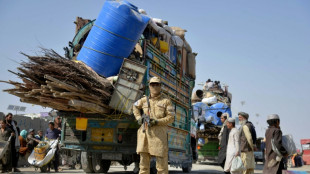 Afghanistan seeks new trade routes as Pakistan ties sour
Afghanistan seeks new trade routes as Pakistan ties sour
-
Iranian director Jafar Panahi ramps up French Oscars campaign
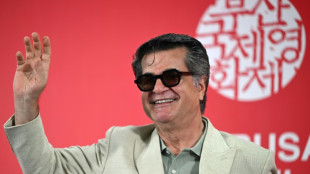
-
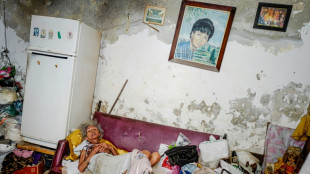 Cuba battles virus outbreak despite shortages of food, medicine
Cuba battles virus outbreak despite shortages of food, medicine
-
30-plus nations oppose COP30 draft over fossil fuel omission: Colombia
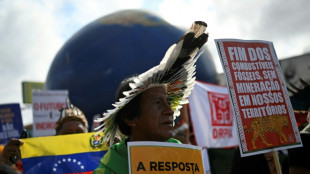
-
 Tech firms lead Asian stock rout as AI bubble fears linger
Tech firms lead Asian stock rout as AI bubble fears linger
-
Ukraine would give Russia chunk of territory under 28-point US plan

-
 England win toss, bat in first Ashes Test
England win toss, bat in first Ashes Test
-
Teen saving India's ponds says everyone can be a leader

-
 Frida Kahlo painting auctions for $54.6 mn, record for woman artist
Frida Kahlo painting auctions for $54.6 mn, record for woman artist
-
Arsenal brace for Spurs clash without Gabriel, Man City in pursuit

-
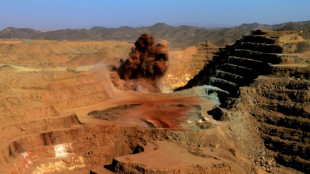 Scramble for Sudan's resources fuels brutal civil war
Scramble for Sudan's resources fuels brutal civil war
-
Livestream giant Twitch to ban under-16s in Australia

-
 Ukraine would cede Donbas to Russia under 28-point US plan
Ukraine would cede Donbas to Russia under 28-point US plan
-
Spain and Germany reach Davis Cup semi-finals

-
 'Black Panther' star Chadwick Boseman gets Hollywood star
'Black Panther' star Chadwick Boseman gets Hollywood star
-
AIZO Group Announces Solid 21.0% Revenue Growth To RM33.94 Million In Q1 FY2026


World's biggest nuclear plant edges closer to restart
Japanese local authorities approved the restart of the world's biggest nuclear plant on Friday for the first time since the 2011 Fukushima disaster.
Hideyo Hanazumi, governor of Niigata province where the Kashiwazaki-Kariwa plant is located, told a news conference he "would approve" the resumption, which will need final permission by Japan's nuclear regulator.
The plant was taken offline when Japan pulled the plug on nuclear power after a colossal earthquake and tsunami sent three reactors at the Fukushima atomic plant into meltdown in 2011.
However, the resource-poor nation now wants to revive atomic energy to reduce its heavy dependence on fossil fuels, achieve carbon neutrality by 2050 and meet growing energy needs from artificial intelligence.
Fourteen reactors, mostly in western and southern regions, have resumed operation since the post-Fukushima shutdown after strict safety standards were imposed.
The 400-hectare (1,000-acre) Kashiwazaki-Kariwa plant on the Sea of Japan coast facing the Korean peninsula would be the first restart for Fukushima operator Tepco since the disaster.
The huge facility in central Japan has been fitted out with a 15-metre (50-foot) wall in case of tsunamis, new power backup systems on higher ground and other measures.
Before the 2011 quake and tsunami, which killed around 18,000 people, nuclear power generated about a third of Japan's electricity, with fossil fuels contributing most of the rest.
Power company Kansai Electric said in July it was taking an initial step towards building the nation's first new nuclear reactor since the Fukushima disaster.
Japan is the world's fifth-largest single-country emitter of carbon dioxide, after China, the United States, India and Russia, and is heavily dependent on imported fossil fuels.
Nearly 70 percent of Japan's power needs in 2023 were met by power plants burning coal, gas and oil -- a figure Tokyo wants to slash to 30-40 percent over the next 15 years.
Almost all these fossil fuels must be imported, at a cost of around $500 million per day.
Japan passed a law in June allowing nuclear reactors to operate beyond 60 years to compensate for stoppages caused by "unforeseeable circumstances".
It aims to make renewables its top power source by 2040.
Under the plan, nuclear power will account for around 20 percent of Japan's energy supply by 2040 -- up from 5.6 percent in 2022.
P.Silva--AMWN